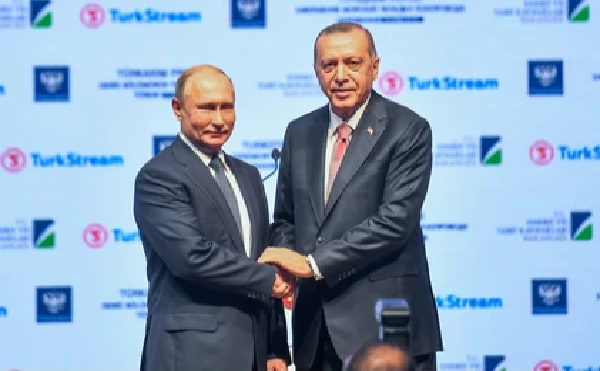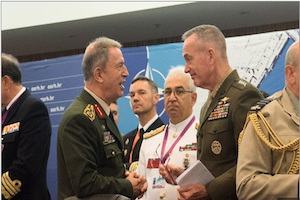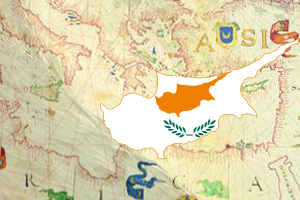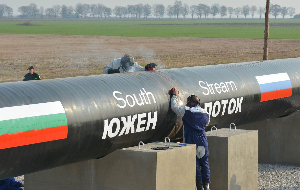A “Pipe Dream?” The Prospects of Turkey as a Hub for Russian Natural Gas
By Natalia Konarzewska
December 13, 2022
Turkey has seized on the opportunity to bolster its standing as an “energy power,” but Russia’s offer to expand the existing Turk Stream pipeline and create a natural gas hub in Turkey seems to be a ‘’pipe dream’’ under current circumstances. The feasibility of the project is highly questionable. The Russian proposal may in fact not be seriously intended. Rather than a realistic goal, it appears mostly to be a window-dressing maneuver in order to put pressure on gas-deprived Europe. Yet even though there are several obstacles to its realization, and ultimately may not be feasible, the Russian proposition nonetheless offers Turkey a welcome opportunity to advance its long-standing goal to turn itself into an energy hub at the crossroads of Europe, Asia and the Middle East.

A Dangerous Policy of Turkish Containment in the Eastern Mediterranean
By Micha’el Tanchum
July 3, 2019
Turkey's provocative action of sending two drillships into Cypriot waters to explore for natural gas is a response to a grander provocation coming from the Republic of Cyprus, Greece, Egypt, and Israel to exclude Turkey from the marketing of Eastern Mediterranean gas. This common front, composed of interlinked security partnerships among the region's current natural gas producers and Greece, has been increasingly supported by the United States, France, and Italy, each of whom has significant economic investments in Eastern Mediterranean gas. For Ankara, its NATO allies' support of this common front is tantamount to a policy of soft containment against Turkey. The hardening of this containment through substantial naval support to the Republic of Cyprus as a response to Turkey's actions could send the Eastern Mediterranean into a dangerous escalation spiral that could permanently alter Turkey's relationship with NATO.

Turkey Loses Ground in Cyprus
By Ozan Serdaroğlu (vol. 8, no. 13 of the Turkey Analyst)
Seven months after Cypriot president Nicos Anastasiades withdrew from the peace talks, attempts to reunify Cyprus are again underway with greater optimism following the election of Mustafa Akıncı as the new leader of Turkish Cypriots. The Greek Cypriot side continues to enlarge its diplomatic capacities and develops a new regional context where Turkey is left with fewer options. Eastern Mediterranean geopolitics together with the more assertive, independent-minded stance of Turkish Cypriots in favor of “reunification” mean that Turkey faces the most delicate stage of its engagement in Cyprus since 1974.

South Stream, Russia and Turkey: What Does The Deal Mean?
By Stephen Blank (vol. 7, no. 22 of the Turkey Analyst)
The announcement that the original South Stream is being closed, and is instead going to be redirected through Turkey, is of epochal significance. However, it is by no means certain that Russia and Turkey can pursue antagonistic policies geopolitically and simultaneously maximize the benefits of their deepened energy relation and increased economic cooperation. And in its eagerness to become a gas hub, Turkey has severely limited the possibilities for Ukraine, Azerbaijan, and Central Asian gas producers to break free of Moscow’s energy grip.

Trans-Anatolian Pipeline: a Geopolitical Achievement, but no Panacea for Turkey's Energy Independence
By M. Kemal Kaya (vol. 5, no. 14 of the Turkey Analyst)
The realization of the Trans-Anatolian Project by 2018 will strengthen Azerbaijan in strategic terms, offering it a route to the world markets that bypasses Russia. The realization of TANAP is a significant geostrategic setback for Russia. However, TANAP is no panacea for Turkey’s energy predicament. Turkey will remain dependent on Russia as a natural gas supplier.




